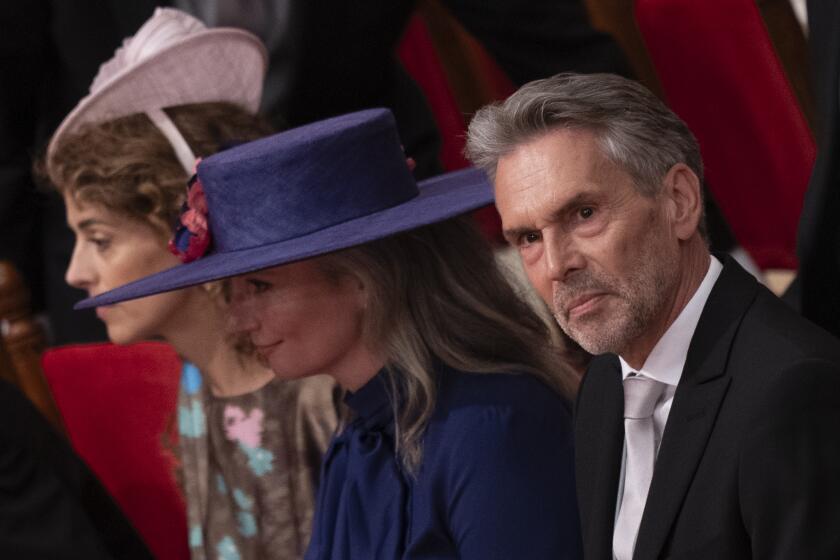Killen Guilty of Manslaughter in 1964 Civil Rights Slayings
A jury convicted Edgar Ray Killen on Tuesday in the slayings of three young civil rights workers, 41 years to the day after they were abducted by a gang of Mississippi Klansmen along a dark highway and shot to death.
After five hours of deliberation, the jurors found Killen, 80, guilty of felony manslaughter instead of murder. When he is sentenced Thursday, the part-time preacher and sawmill operator faces a maximum penalty of 60 years in prison.
The killings of James E. Chaney, Andrew Goodman and Michael H. Schwerner transfixed America during the summer of 1964 and helped galvanize the civil rights movement.
On Tuesday, Dist. Atty. Mark Duncan said the verdict would lift decades of shared guilt from Neshoba County.
“For too long we bore the burden of what was done here by a handful of people,” he said. “Today, the people of Neshoba County have spoken to the world and said who they are.”
James McIntyre, Killen’s lawyer, said he planned to appeal the verdict. “I’m disappointed,” McIntyre said. “He did not get a trial before a jury of his peers, because his peers are all dead.”
Moments after the verdict was announced, Rita Schwerner Bender, Schwerner’s widow, put her arms around the shaking shoulders of Roscoe Jones -- a black man who as a 17-year-old had volunteered alongside her husband. Then she smiled across the room at some of the activists who had pressed year after year for a prosecution and told them: “Thank you.”
“It’ll do,” she said. “It’ll do.”
On the other side of the courtroom, Killen’s wife, Betty Jo, ran to her husband’s side and rested her head on his shoulder. Killen, confined to a wheelchair and breathing with the assistance of an oxygen tube, grabbed at her shirt sleeve. He did not show any emotion until his wheelchair was pushed out of the courthouse, where he found himself surrounded by cameramen.
He struck out at them furiously with both hands, sending some stepping backward, until he reached the waiting police car and was loaded into it.
Goodman and Schwerner, who were white, and Chaney, who was black, were in Philadelphia investigating the burning of a black church. On June 21, 1964, Neshoba County police pulled them over for speeding. When they were released from jail, their station wagon was followed by Klansmen, who beat and shot the men on a deserted road.
When the three could not be found, federal agents arrived to investigate. Mississippi officials claimed that the civil rights workers were not missing but vacationing on a beach in Cuba.
Forty-four days later, their bodies were found entombed in an earthen dam.
The killings, which were depicted in the film “Mississippi Burning,” stood out for their savagery, said David Sansing, a professor emeritus of history at the University of Mississippi.
“The Ku Klux Klan, when they killed those three boys, I think that was a real turning point” in the civil rights movement, Sansing said. “People in Mississippi realized that resistance was more dangerous than what they were resisting. It may have been the most heinous crime of the whole civil rights era.”
Over a six-day trial, prosecutors made the case that although Killen had not been present at the scene, he had masterminded the murders -- recruiting men and organizing disposal of the bodies.
Killen was one of 18 men prosecuted in 1967 on federal civil rights charges, but he was not convicted. That jury deadlocked 11 to 1 on Killen’s guilt; the lone holdout said she could not convict a preacher.
Although seven of those defendants are still alive, prosecutors were unable to persuade any of them to testify. So the case relied heavily on transcripts of the 1967 trial, including the testimony of paid FBI informants.
Juror Warren Paprocki said the trial would have ended in a hung jury had manslaughter not been an option. The panel immediately fell into two camps, he said, with half of the jurors arguing that there was not enough evidence to convict Killen.
During the initial deliberations Monday night, three jurors were adamant that the charge should be murder.
“I was depressed because I thought it would be a hung jury,” said Paprocki, 55, an engineer. “A hung jury would have been awful.”
When deliberations resumed Tuesday, the jurors -- three black and nine white -- began to focus more on the manslaughter charge. Prosecutors had emphasized that option in closing arguments, explaining to the jurors that if they believed Killen had ordered a beating and not murder, then manslaughter would be appropriate.
“I feel proud that we did our duty,” Paprocki said. “I feel better about the manslaughter charge than the original murder charge. There has been a cloud of evil hanging over this place for the last 41 years.”
At a news conference after the verdict was announced, Duncan turned to the victims’ family members.
“While we can’t undo what was done 41 years ago, at least now you know that the state of Mississippi has done what it could,” the district attorney said. “It may not be a perfect ending, but I hope in some way this helps you deal with the loss you have suffered.”
Schwerner’s widow had hard words about the manslaughter verdict.
“The fact that some members of the jury could not bring themselves to acknowledge that these were murders, that they were committed with malice, indicates that there are still people among you that choose to look aside, not to see the truth,” she said.
Ben Chaney, who was 11 when his older brother was killed, said: “We’ll take what we got.” Chaney has long been a critic of the prosecution and has argued that Killen should not be the only defendant in the case.
But Chaney smiled Tuesday, saying he spoke with his mother, Fannie Lee Chaney, by telephone after the verdict. “I feel like she’s happy,” he said.
In the Mississippi communities of Union and House, where Killen’s relatives have lived for nine generations, friends and family were taking turns checking on his wife. Donna Alvarez, Killen’s niece, said no one could understand why Killen had been prosecuted for the deaths when it was common knowledge that he was not a triggerman.
“Why did they pick my uncle out? How could he do it by himself?” said Alvarez, 34, manager of a Wal-Mart pharmacy. “They just wanted someone in jail.”
Alvarez, whose husband is Latino, said she had never seen Killen mistreat anyone because of race.
At John Keith Henry’s auto shop in Union, customers had been grumbling about the verdict all day, he said. Henry was critical that the jury had been given a manslaughter option, which he said was “a way out.”
“I feel like that’s the very end of it. They’ve got ‘em a token conviction,” said Henry, 66.
“I think it has definitely hurt this community. It’s renewed a lot of ill feelings that are going to take another 20 years to die down.”
Times researcher Jenny Jarvie in Atlanta contributed to this report.
More to Read
Sign up for Essential California
The most important California stories and recommendations in your inbox every morning.
You may occasionally receive promotional content from the Los Angeles Times.










